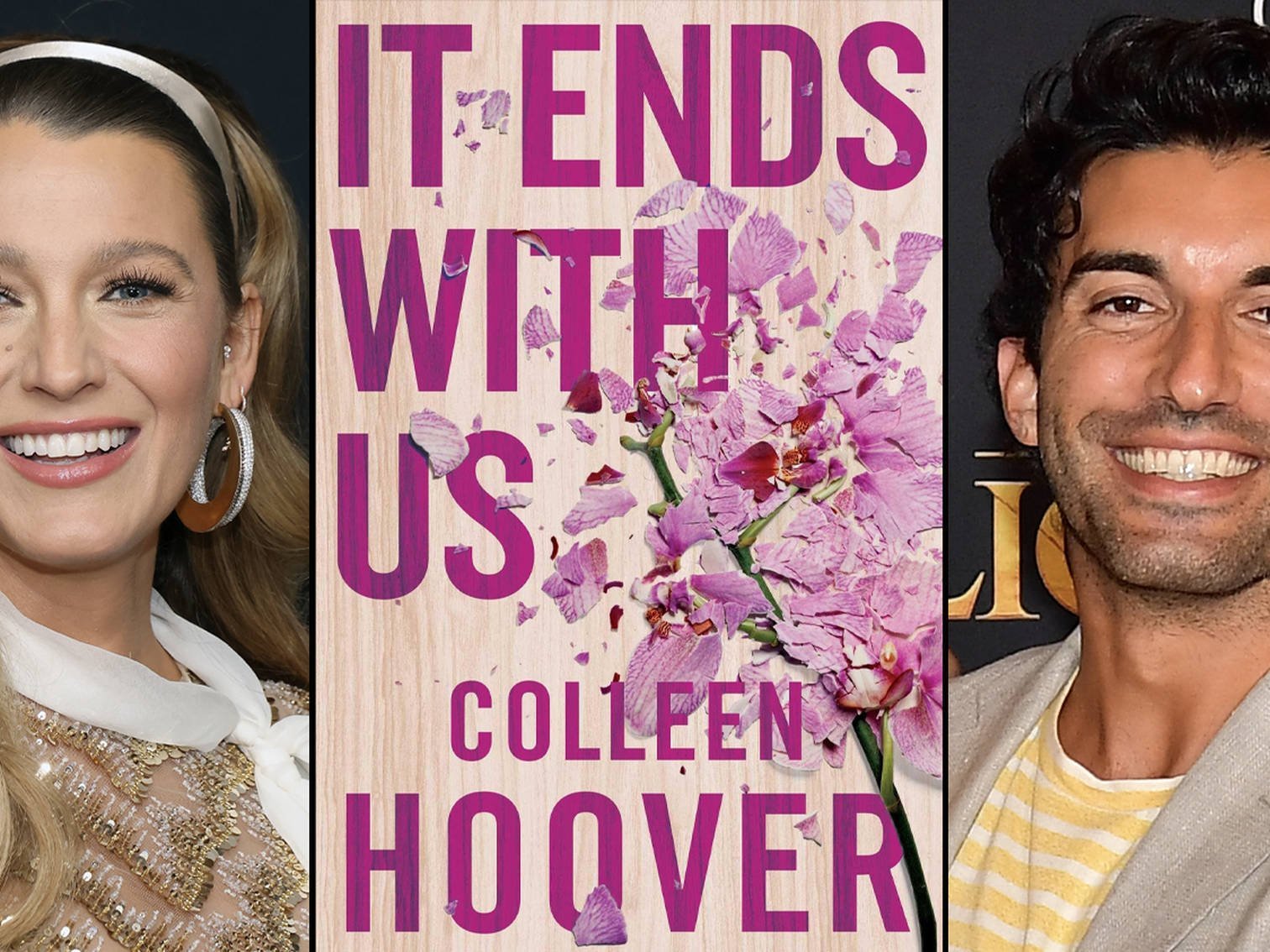Introduction to ‘It Ends with Us’
‘It Ends with Us‘ by Colleen Hoover, published in August 2016, is a thought-provoking novel that delves into the complexities of relationships, domestic violence, and personal strength. Categorized within the romance and contemporary fiction genres, this book has resonated with a broad audience, becoming a New York Times Best Seller and earning critical acclaim for its poignant storytelling.
The narrative centers around Lily Bloom, a young woman who embarks on a journey of self-discovery and resilience. After growing up in an abusive household, Lily moves to Boston, where she meets Ryle Kincaid, a neurosurgeon with whom she develops a passionate yet tumultuous relationship. Ryle is charming and ambitious, but he harbors deep-seated issues that complicate their relationship, mirroring some of the abusive traits she witnessed in her father’s behavior.
As Lily navigates her feelings for Ryle, she reconnects with Atlas Corrigan, her first love, who profoundly impacted her during her teenage years. Atlas, now a successful chef, represents a safe harbor and a stark contrast to Ryle’s volatile nature. His reappearance in Lily’s life forces her to confront her past and the difficult choices about her future.
‘It Ends with Us‘ has garnered significant praise for its emotional depth and unflinching portrayal of sensitive topics. Colleen Hoover’s nuanced character development and compelling narrative have struck a chord with readers and critics alike, earning the novel its place in the hearts of many. The book’s accolades, including Goodreads Choice Awards for Best Romance, further underscore its impact and relevance.
As we delve deeper into this review, we will explore the themes, character dynamics, and narrative structure that make ‘It Ends with Us’ a standout work in contemporary fiction.
Exploration of Major Themes

‘It Ends with Us‘ by Colleen Hoover is a compelling narrative that tackles a variety of profound themes, each intricately woven into the storyline to enhance the book’s emotional depth. One of the most prominent themes is domestic violence. Hoover skillfully depicts the cyclical nature of abuse through the protagonist, Lily Bloom, and her tumultuous relationship with Ryle Kincaid. By illustrating both the overt and subtle forms of abuse, the author sheds light on the complexities and psychological impacts of such relationships. This theme is further enriched by Lily’s reflections on her mother’s experiences and the echoes of past traumas, creating a multifaceted exploration of domestic violence.
Romantic relationships are another central theme in ‘It Ends with Us.’ Hoover expertly portrays the nuances and intricacies of love through the evolving dynamics between Lily, Ryle, and Atlas Corrigan. The portrayal of Lily’s internal conflict and her journey of understanding what love and respect truly mean offers readers a raw and authentic perspective on romantic entanglements. The novel challenges the idealized views of romance, presenting relationships as multifaceted and often fraught with challenges.
Personal growth is a theme that runs parallel with the narrative’s exploration of love and abuse. Lily’s journey is one of self-discovery and empowerment. Through her experiences, she evolves from a woman burdened by her past to someone who finds the strength to break free from harmful patterns and make choices for her own well-being. This theme is especially poignant as it reflects the title of the book, emphasizing the resolve to end destructive cycles.
Adding a layer of authenticity and depth to these themes is the author’s personal note at the end of the book. Colleen Hoover shares real-life experiences that inspired ‘It Ends with Us,’ bridging the gap between fiction and reality. This note enriches the reader’s understanding of the emotional gravity of the themes and reinforces the novel’s impact. Through these interconnected themes, ‘It Ends with Us’ offers a profound and resonant reading experience, leaving a lasting impression on its audience.
Character Development and Relationships

“It Ends with Us” by Colleen Hoover presents a compelling narrative driven by intricate character development and complex relationships. Central to the story is Lily Bloom, whose evolution is both profound and thought-provoking. From the outset, Lily is portrayed as a tenacious and empathetic character, determined to forge her own path despite the shadows of her past. Her journey towards self-discovery and empowerment is heavily influenced by her relationships with two pivotal characters: Ryle Kincaid and Atlas Corrigan.

Lily’s relationship with Ryle is a dichotomy of intense love and profound conflict. Ryle, a successful neurosurgeon, initially appears as the ideal partner. Their connection epitomizes the excitement and passion of newfound love. However, as their relationship progresses, the veneer of perfection begins to crack, revealing Ryle’s darker side. His struggle with anger management and past traumas adds layers of complexity to his character and challenges Lily’s notions of love and loyalty. This dynamic underscores the difficult choices many individuals face in real-life relationships, where the lines between love and toxicity can become blurred.
In contrast, Lily’s bond with Atlas represents a formative and enduring connection rooted in shared history and mutual respect. Atlas, her childhood friend and first love, reappears in Lily’s life when she is most vulnerable, offering guidance and unwavering support. Their interactions reveal the healing power of unconditional love and highlight the importance of self-worth. Atlas’s presence serves as a catalyst for Lily’s growth, prompting her to reevaluate her circumstances and make decisions that prioritize her well-being.
The secondary characters in “It Ends with Us” also play significant roles in enriching the storyline. Alyssa, Ryle’s sister and Lily’s close friend, provides a sense of stability and perspective amidst the turmoil. Her character exemplifies unwavering loyalty and support, qualities that are instrumental in Lily’s journey. Additionally, the interactions between minor characters lend authenticity to the narrative, portraying a vivid tapestry of human experiences.
Ultimately, the dynamics between Lily, Ryle, and Atlas, along with the contributions of secondary characters, illuminate the central themes of the novel. The turning points in their arcs, such as the revelation of Ryle’s violent tendencies and Lily’s courageous decision to break the cycle of abuse, offer poignant insights into human nature and resilience. Through these relationships, “It Ends with Us” masterfully reflects the complexities of love, pain, and personal growth.
Writing Style and Impact

Colleen Hoover’s writing style in “It Ends with Us” is a masterclass in emotional storytelling. Her use of accessible yet evocative language ensures that complex themes are conveyed with clarity and depth, making the novel both approachable and profound. The narrative structure, split between past and present, allows readers to experience Lily Bloom’s journey in a way that is both gripping and enlightening. Hoover’s adept pacing keeps the story moving steadily, revealing critical plot points at just the right moments to maintain suspense and foster deep empathy for the characters.
One of the standout features of Hoover’s writing in “It Ends with Us” is her dialogue. It is authentic and impactful, capturing the characters’ emotions and motivations succinctly. For example, a poignant line from Ryle Kincaid, “There’s no such thing as bad people. We’re all just people who sometimes do bad things,” encapsulates the moral complexities that Hoover deftly explores throughout the novel. Such passages not only highlight the intricacies of human relationships but also engage readers in meaningful reflection.
Hoover’s descriptive passages are equally noteworthy, painting vivid pictures of the settings and internal landscapes of her characters. Her portrayal of Lily’s emotional turmoil is particularly compelling, as evidenced in lines like, “In the future…if by some miracle you ever find yourself in the position to fall in love again…fall in love with me.” This careful crafting of words ensures that the reader remains emotionally invested from start to finish.
The emotional journey that “It Ends with Us” takes its readers on is one of intense suspense, heartfelt empathy, and profound revelation. The themes of domestic abuse, resilience, and the complexity of love are explored with sensitivity and depth, making the novel a catalyst for important discussions. Hoover’s ability to elicit such a wide range of emotions is a testament to her storytelling prowess.
Overall, “It Ends with Us” leaves a lasting impact on its audience, prompting reflection on the themes it addresses and encouraging conversations about the nuances of human relationships. Hoover’s writing style, with its balance of simplicity and emotional depth, ensures that the novel resonates deeply with readers, leaving an indelible mark long after the final page is turned.





